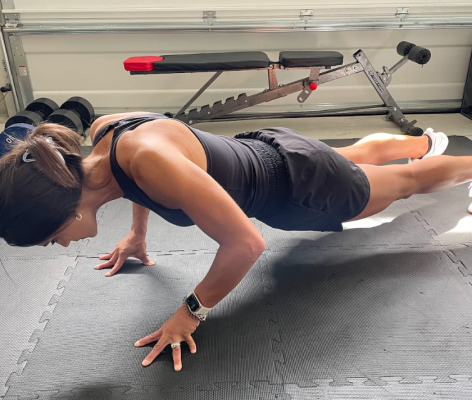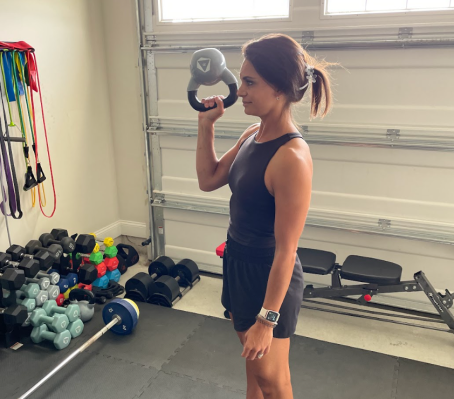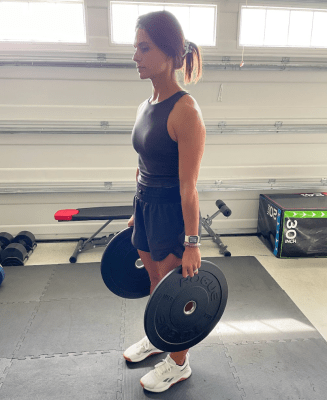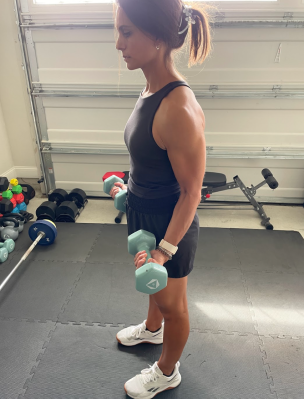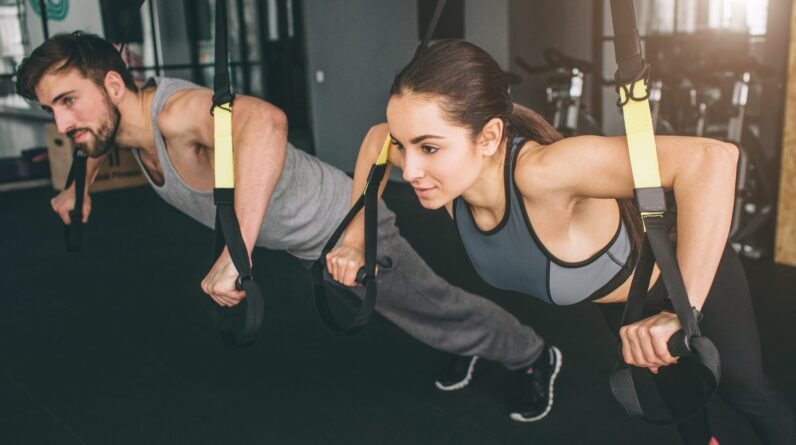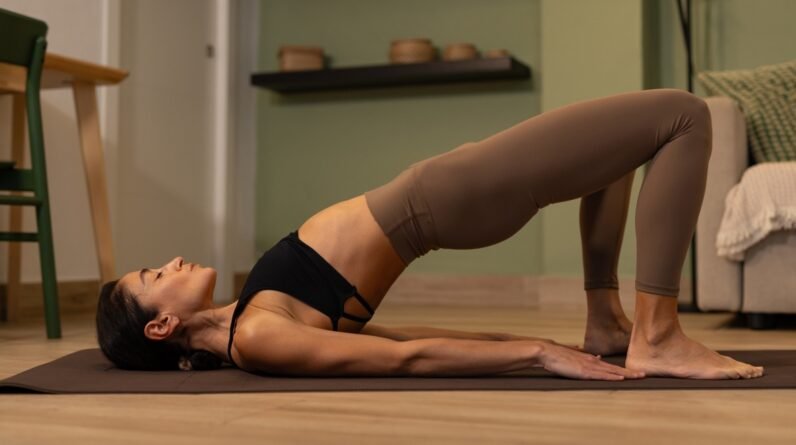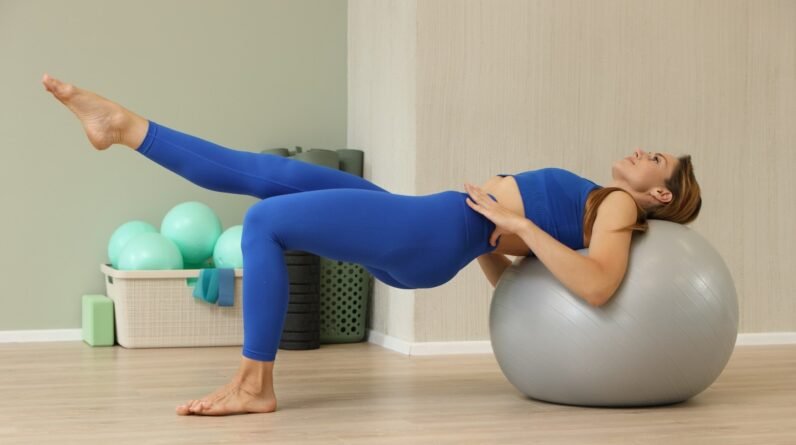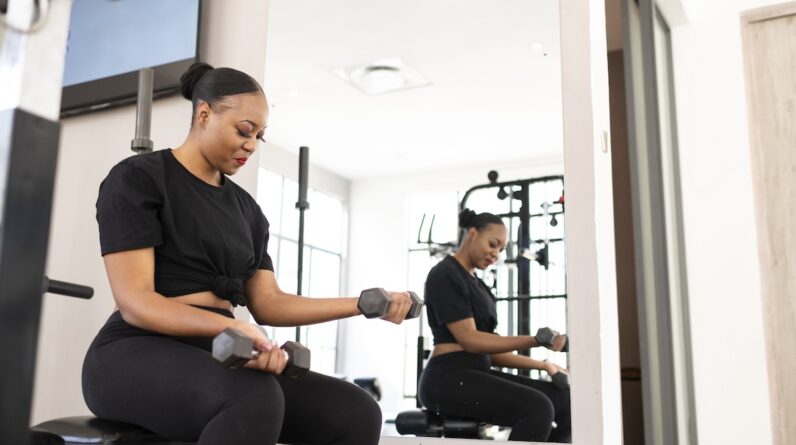
This often forgotten area is actually a key area of focus for those who study longevity: Having good grip strength has been found to be an indicator of healthy lifespan. Plus, in a more direct way, it can make your day-to-day life easier.
“If you think about all the things that your hands do in a day, it’s easy to see how a strong grip is beneficial,” says Tami Smith, CPT, certified personal trainer and owner of Fit Healthy Macros.
Here are the benefits associated with a strong grip—plus, a quick forearm workout you can do anywhere, any time.
In This Article
-
01
Grip Strength Benefits
-
02
Grip Strength Workout
The benefits of good grip strength
Grip strength is handy for opening things like jars of pasta sauce, but it can also be an indicator of how quickly you’re aging. Better grip strength tends to be associated with aging more slowly, per the Cleveland Clinic.
It’s also linked with the ability to recover from diseases and prevent frailty. A weak grip strength tends to indicate more rapid aging, a higher risk of chronic diseases, and a shorter lifespan.
In fact, early mortality rate was 1.56 times higher in people with weak hand grip strength compared to other participants over a 10-year period in a 2022 study published in the International Journal of Environmental Research and Public Health.
Those with weaker hand grip strength also show signs of faster DNA aging compared to people with greater strength, per a 2022 study published in the Journal of Cachexia, Sarcopenia and Muscle. The findings show that maintaining muscle strength may positively influence healthy aging by protecting against DNA aging.
But why grip strength, specifically? It’s a simple yet potent predictor of future disability, morbidity, and mortality, which has been shown in all ages (not just older people). But more research is needed to know why, per the authors of a notable 2015 editorial in The Lancet.
“Important questions remain, such as whether the association between grip strength and future mortality is [generalizable] across countries of widely varying socioeconomic circumstances and, particularly, what might explain the associations,” note the authors of the editorial.
In other words, the biological link between grip strength and its predictive power still needs to be explored.
Apart from the benefits for everyday tasks and longevity, grip strength can also help you excel more in your other workouts.
“Those who don’t have a strong grip often hit a ceiling on how much weight they can lift or reps they can perform, because their grip will give out before their other muscles will,” Smith says. “With a strong grip, you can continue to get stronger in the gym.”
Grip strength naturally starts to decline around age 50, so it’s important to start exercising this part of your body before then to maintain it, per the Cleveland Clinic.
One common exercise includes squeezing a racquetball or squash ball for 10 minutes twice per day. That said, if you’d like to mix it up, you can also try the below 10-minute forearm workout with a variety of exercises.
A 10-minute forearm workout for better grip strength
Because we don’t know the exact mechanisms behind the grip strength and longevity link, there’s no proof that strengthening your grip will necessarily help you live longer or prevent disease. However, you can still reap the benefits, like more ease in day-to-day tasks and more efficiency in your other workouts, with a forearm workout.
This grip strength workout can be done in 10 minutes, but it may end up clocking in closer to 20 minutes if you take longer rests between sets and exercises. In either case, it will help strengthen your grip and forearm strength.
1. Fingertip push-up
- Begin in a high plank position with your hands directly under your shoulders.
- Position your hands so that only your fingertips are touching the ground (spread your fingers wide). Keep your core engaged and your body in a straight line.
- Bend your elbows, lowering your body toward the ground. Keep your elbows tucked close to your sides.
- Go as low as feels comfortable, trying to get as close to the ground as possible.
- Push back up through your fingertips to return to the starting position.
- Repeat 3 sets of 5 to 10 reps.
Tip: For a modification, perform fingertip push-ups on your knees.
2. Kettlebell wrist hold
- Begin by standing with your feet shoulder-width apart. Hold a kettlebell in one hand by the handle with the bulb part (weight) facing up.
- Push the kettlebell in front of your body, elbow bent, holding the kettlebell with your wrist at chin level. Maintain a straight posture and an engaged core throughout the movement. Focus on keeping the kettlebell steady.
- Hold the kettlebell for 30 to 60 seconds before lowering it and switching to the other arm. Increase the hold time as your grip strength increases over time.
- Repeat 3 sets of 30 to 60 second holds.
Tip: If you don’t have kettlebells, use a dumbbell, milk jug, or laundry detergent bottle.
3. Weight plate hold
- Begin with your feet shoulder-width apart.
- Hold a weight plate in each hand by its edges, allowing them to hang by your sides with your palms facing your body.
- Keeping your shoulders pulled down and your back and core engaged, hold the weight plates for 30 to 60 seconds before lowering them to the ground carefully. Increase the hold time as your grip strength increases over time.
- Repeat 3 sets of 30 to 60 second holds.
Tip: If you don’t have weight plates, use dumbbells, kettlebells, or another type of thick, heavy weight.
4. Standing dumbbell wrist curl
- Begin by standing with your feet shoulder-width apart.
- Hold a dumbbell in each hand with your palms facing up. Allow your arms to hang down at your sides with your elbows bent slightly.
- Keeping your arms stationary, flex just your wrists to curl the dumbbells up towards your torso, bringing your knuckles to your forearms.
- Squeeze your forearm muscles at the top before slowly lowering the dumbbells back down to the starting position.
- Repeat 3 sets of 8 to 10 reps.
Well+Good articles reference scientific, reliable, recent, robust studies to back up the information we share. You can trust us along your wellness journey.
- Kim J. Handgrip Strength to Predict the Risk of All-Cause and Premature Mortality in Korean Adults: A 10-Year Cohort Study. Int J Environ Res Public Health. 2021 Dec 21;19(1):39. doi: 10.3390/ijerph19010039. PMID: 35010298; PMCID: PMC8751337.
- Peterson MD, Collins S, Meier HCS, Brahmsteadt A, Faul JD. Grip strength is inversely associated with DNA methylation age acceleration. J Cachexia Sarcopenia Muscle. 2023 Feb;14(1):108-115. doi: 10.1002/jcsm.13110. Epub 2022 Nov 9. PMID: 36353822; PMCID: PMC9891916.
- Gale CR, Martyn CN, Cooper C, Sayer AA. Grip strength, body composition, and mortality. Int J Epidemiol. 2007 Feb;36(1):228-35. doi: 10.1093/ije/dyl224. Epub 2006 Oct 19. PMID: 17056604.


